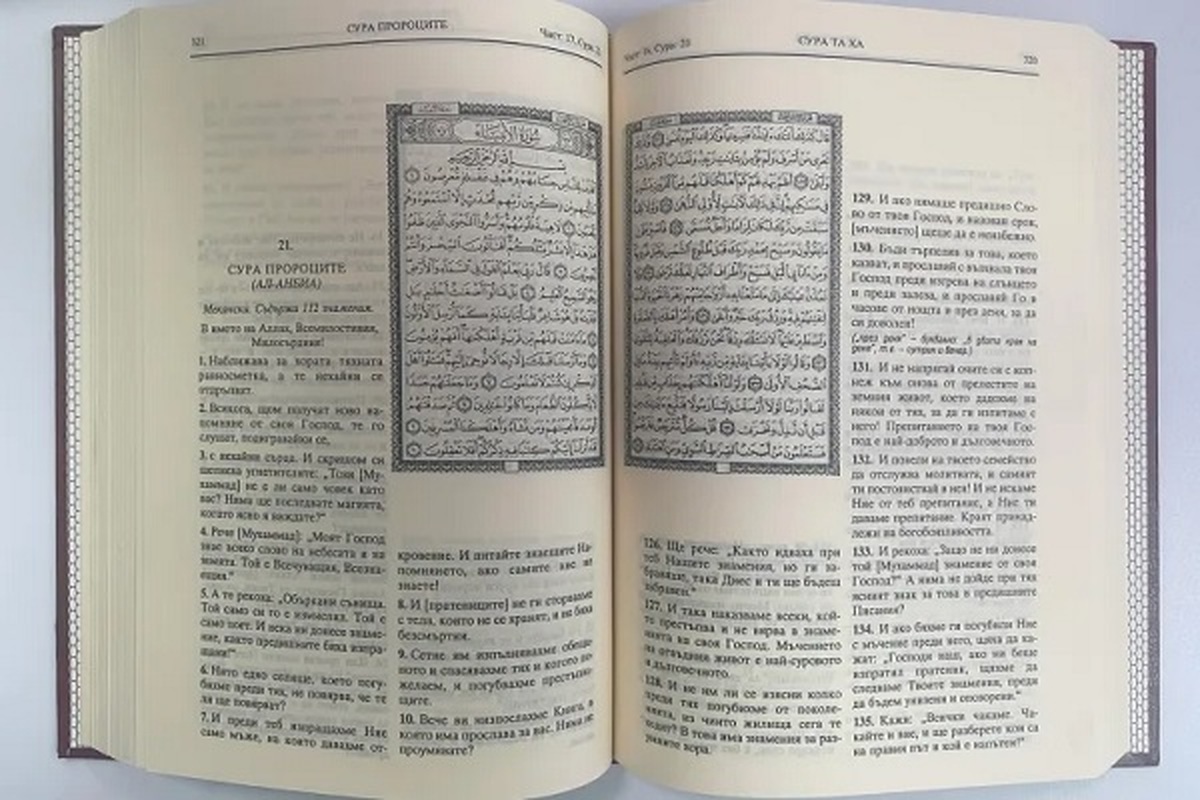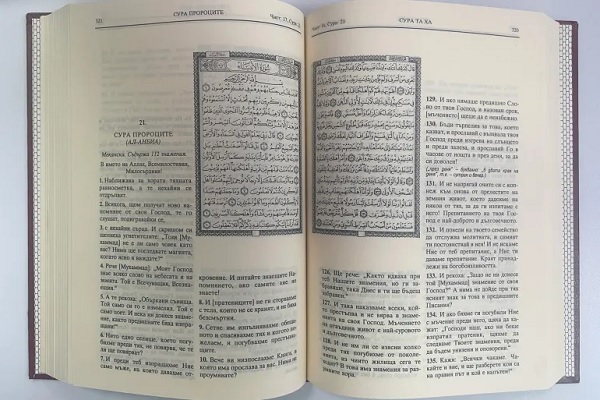When Was Quran Translated into Bulgarian First Time?


These were part of the Bulgarian government’s efforts to establish contact with the Pomak people, Bulgarian Muslims who lived in the south of the country, according to the MuslimsAroundtheWorld website.
Initially there was no urgent need to translate the Quran into Bulgarian, because Muslims and scholars of Islamic sciences in Bulgaria were fully proficient in both Turkish and Arabic.
However, after Bulgaria separated from the Ottoman Empire and became an independent country, and the Bulgarian language was chosen as the official language of the country, studies on Islam began in Bulgarian.
The use of the Arabic alphabet among Bulgarian Muslims continued until 1938, when the Bulgarian King Boris III (1894-1943) issued a decree to replace the Arabic alphabet with the Latin alphabet.
Then, in 1944, the communist government took over the country and began to fight against all religions, especially Islam, which had a long history with the Ottoman Empire.
Beginning of Quran Translation into Bulgarian
The first efforts to translate the Holy Quran into Bulgarian began in the 1920s as part of the Bulgarian government’s efforts to establish contact with the Pomak people, Bulgarian Muslims living in the south of the country. These efforts were in line with the government’s program to integrate Muslims into Bulgarian society.
Another attempt to translate Quran into Bulgarian was made by Protestant missionaries in 1930. This translation was made from German into Bulgarian. In 1944, another translation was published, which was a translation of the English rendering of Islam’s Holy Book.
After the fall of the communist regime in Bulgaria, attention began to be paid to Islamic studies. Therefore, in 1991, a translation of the Holy Quran into Bulgarian was published by the Ahmadiyya sect.
Then, in 1993, a translation by Nadim Kunjiev, who was originally Turkish and born in 1945, was published. This Bulgarian rendering was a translation of the Quran in Turkish. Kunjiev was the Mufti of Bulgaria between 1988 and 1991.
After that, Professor Tsotan Teofanov, a Bulgarian Arabic scholar born in 1952, presented the first edition of the academic translation of the concepts of the Holy Quran from Arabic in Sofia, the capital of Bulgaria, in 1997.
Read More:
Then, in 1999, the second edition of this translation was published in Sofia, and subsequent editions, which were edited and revised, were published in 2006, 2008, 2019, 2022, and 2025 in Sofia and Istanbul.
This translation is considered one of the best translations of the Quran into Bulgarian.
A new edition of the translation of the Holy Quran into Bulgarian was also published in 2009 by Professor Ivan Dobrev, a Bulgarian linguist born in 1938.
Recently, in 2023, a new translation by Ali Khairuddin, the former Mufti of the Sofia region, born in 1956, was published, which generally relied on Turkish translations of the Quran.
4309076



